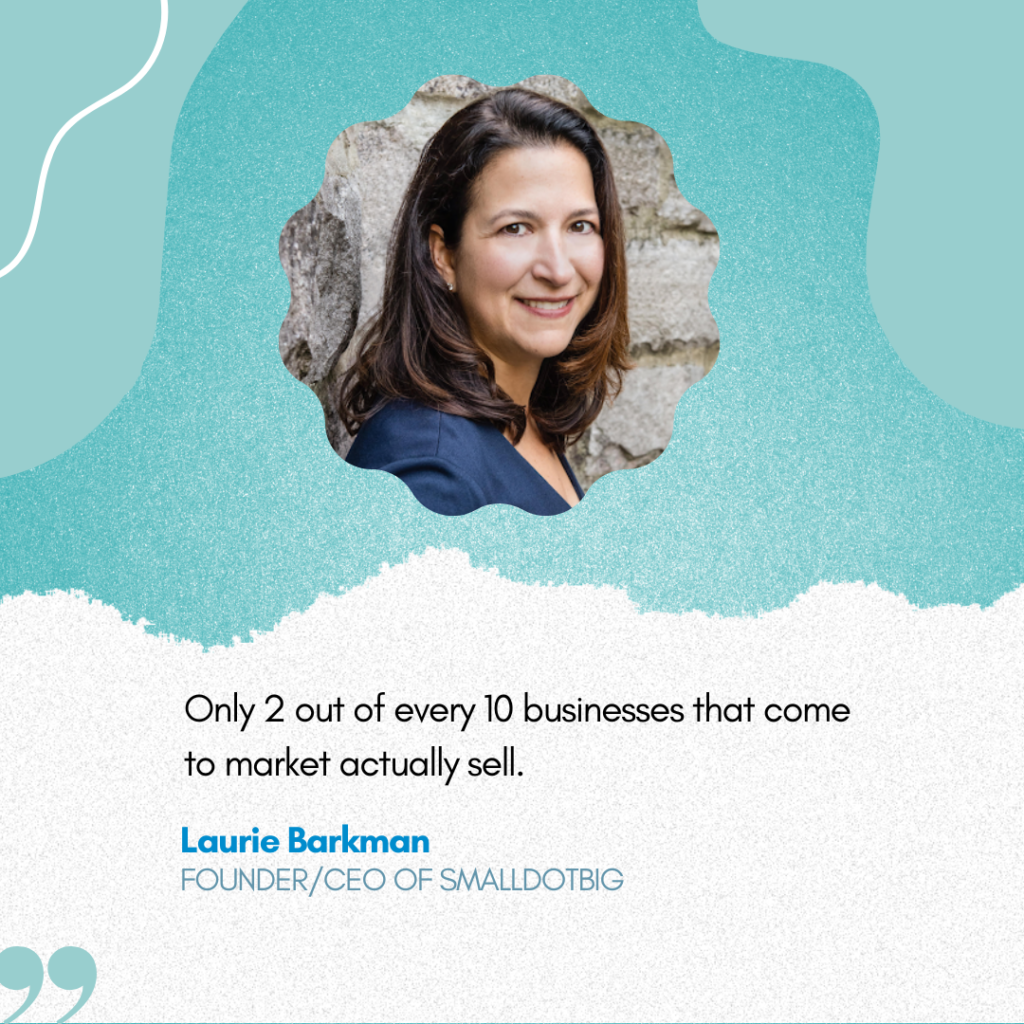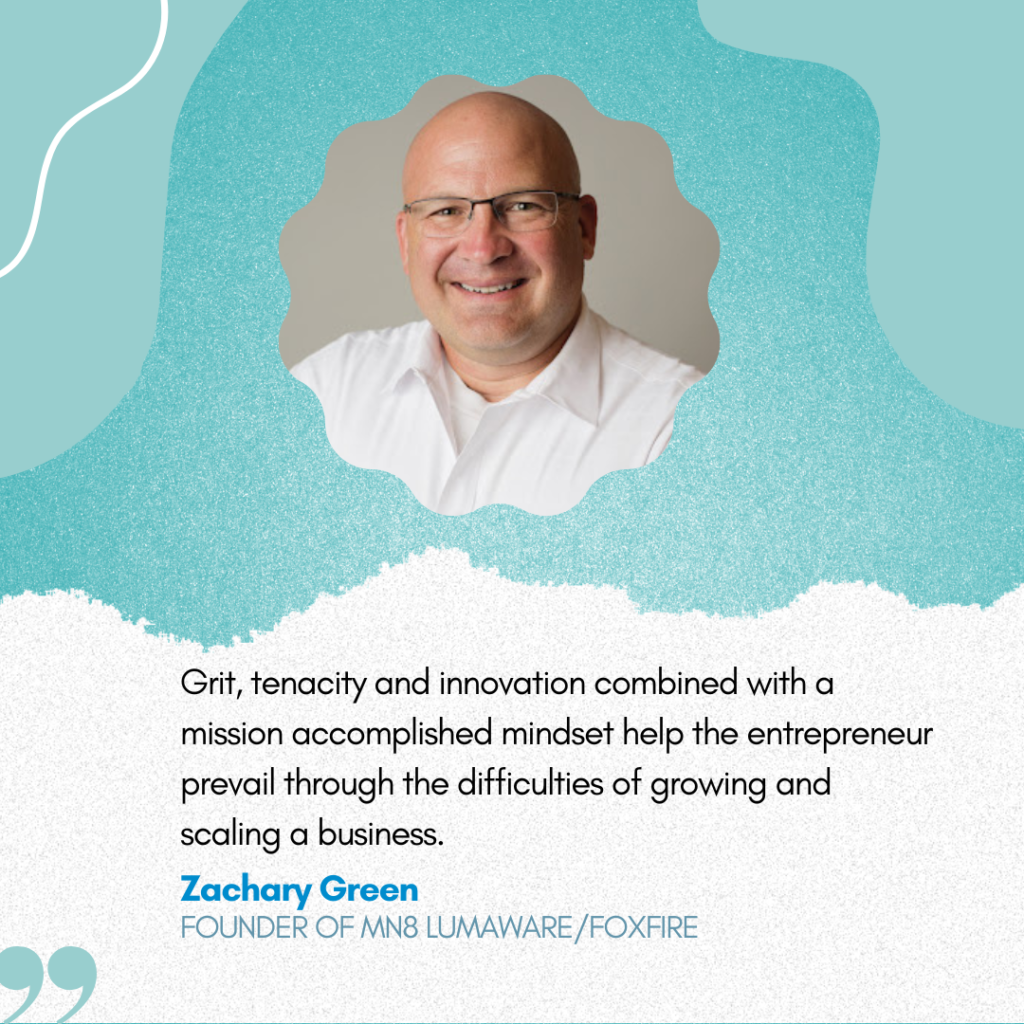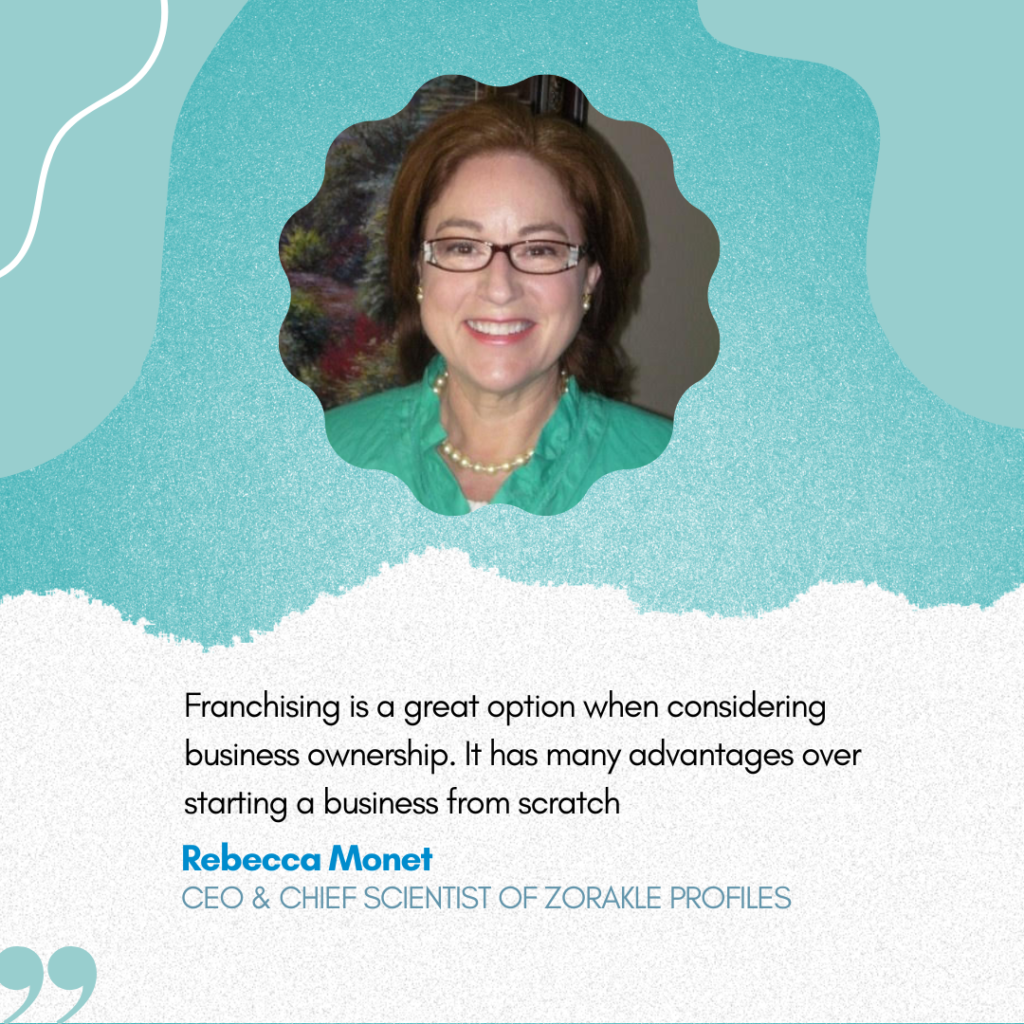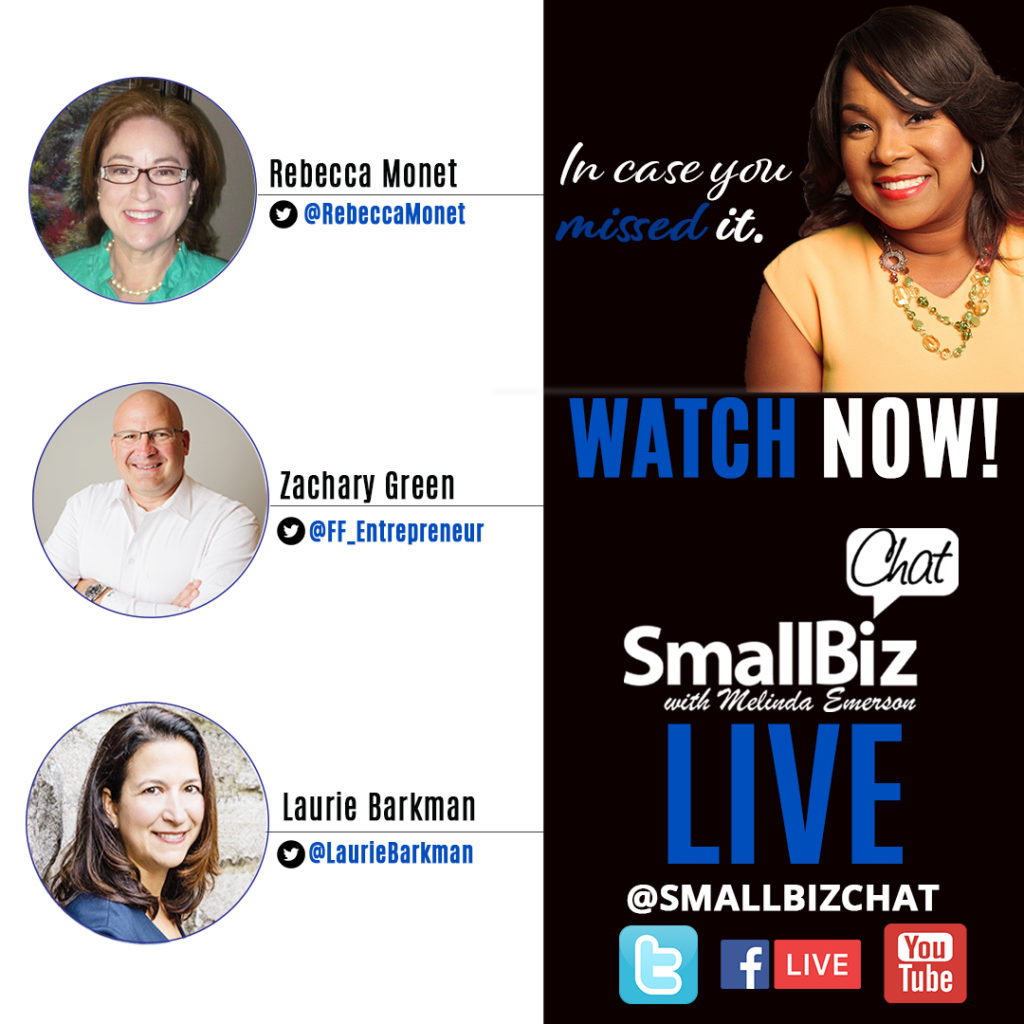 #Smallbizchat Podcast LIVE is a monthly video interview show where small business owners can get answers to their questions.
#Smallbizchat Podcast LIVE is a monthly video interview show where small business owners can get answers to their questions.
The focus of #Smallbizchat is to end small business failure by helping participants succeed as your own boss.
Please join us live every third Wednesday of the month from 8-9 pm ET Live on my SmallBizLady Facebook Page, YouTube Channel and LIVE on Twitter.
How to Build a Business Transition Plan
 Laurie Barkman is the Founder/CEO of SmallDotBig, advising business owners on having more valuable, sellable businesses. Additionally, she is a Partner with Stony Hill Advisors, an M&A firm representing companies on the buy-side or sell-side of transactions. Think of her as a business transition sherpa– working with owners to maximize the value of their company, and guide them through the complex process of letting it go. For more information: https://smalldotbig.com/
Laurie Barkman is the Founder/CEO of SmallDotBig, advising business owners on having more valuable, sellable businesses. Additionally, she is a Partner with Stony Hill Advisors, an M&A firm representing companies on the buy-side or sell-side of transactions. Think of her as a business transition sherpa– working with owners to maximize the value of their company, and guide them through the complex process of letting it go. For more information: https://smalldotbig.com/
SmallBizLady: What impacts the value of a business? Why are so many companies not sellable?
Laurie Barkman: Only 2 out of every 10 businesses that come to market actually sell. The main thing is transferability, risk, and opportunity. It’s important to note that value in the private markets is determined by the buyer, and we want to influence that price as much as possible. There are eight core drivers of value on what we can control. The biggest factor is Financial– size matters. Smaller companies may be seen as riskier, and therefore may not be viewed as transferable as larger businesses. Other aspects like growth potential, and the industry that we’re in, tend to be where we start the conversation.
I use a tool called a Value Builder Assessment that’s used to help understand and baseline where a company is today. We ask questions around these eight core drivers. Other drivers include risk around customers, suppliers, and employees. Customer satisfaction metrics. Also, how niche or differentiated your business is versus competitors. If there is a recurring revenue or subscription model. The other categories have to do with how well your company’s processes and team enable your business to thrive without you. A business that can’t survive without its owner or founder is a worthless company
SmallBizLady: What trends are you seeing for small business mergers and acquisitions?
Laurie Barkman: Many business owners are accelerating their transition timelines, shifting from more than 10 years away, to less than 5 years. Coupled with silver tsunami demographics, pandemic wear-down, more business owners are contemplating their options and looking for an exit strategy.
SmallBizLady: What the three main ways people sell a business?
Laurie Barkman: Let’s talk about different options owners have in terms of a business exit strategy. There are certainly options that may work better for you, depending on your particular situation.
[1] Pass the business along to a family member
Pros: You can choose and prepare the person you want to continue your business when you leave. You don’t have to completely separate from your business and may be able to stay on in some sort of transitional or ongoing advisory role. Cons: You may not find a family member who wants to (or is capable) of taking on the business. This process may bring a lot of emotional, financial, and general stress to your family. Employees, business partners, or investors may not support the individual in your family you choose.
[2] Have existing managers buy you out
Pros: You can hand off your business to someone who has experience in the organization—and that you hopefully know and trust. As you’re still selling the business, you should be able to make some money off the deal. If you want to remain involved in some capacity, the employees who are buying your business should be more likely to make something work. Your business’s legacy will remain somewhat intact.
Cons: You may not be able to find an employee or manager who wants to buy the business from you. You may find that these management changes are difficult to implement and may have a negative effect on existing clients.
[3] Sell to a third-party
Pros: You’ll be able to have a clean break from your business (if that’s what you want). You can negotiate the terms, price, and other details of your merger or acquisition.
Cons: This can be a time-consuming, costly, and perhaps even unsuccessful process. Your business may cease to exist as it once was, and get absorbed into the acquirer’s business. This may be the only time you’ll sell a business, and working with a team of advisors is important – from the M&A side to marketing the company, to minimizing taxes, and getting rewarded for all of your hard work.
How to Use Adversity to Grow Your Business Leadership
 Zachary Green is a serial entrepreneur, veteran and an international best-selling author. He is founder of MN8 LumAware/Foxfire a company he grew from the trunk of his car to over $30MM in organic sales. As CEO of Warrior Enterprises L.L.C. Zachary coaches entrepreneurs around the science of growth that comes from challenge and adversity. He has been featured in Entrepreneur Magazine and on the home page of Yahoo.com. Zachary has testified in front of the US House of Representative Small Business committee and was named Entrepreneur of The Year by Ohio Governor John Kasich. For more information: www.warriorleader.us
Zachary Green is a serial entrepreneur, veteran and an international best-selling author. He is founder of MN8 LumAware/Foxfire a company he grew from the trunk of his car to over $30MM in organic sales. As CEO of Warrior Enterprises L.L.C. Zachary coaches entrepreneurs around the science of growth that comes from challenge and adversity. He has been featured in Entrepreneur Magazine and on the home page of Yahoo.com. Zachary has testified in front of the US House of Representative Small Business committee and was named Entrepreneur of The Year by Ohio Governor John Kasich. For more information: www.warriorleader.us
SmallBizLady: What did you learn from the Marines and Fire Department to help you as an entrepreneur
Zachary Green: Grit and adversity help the warrior battle through challenges. Grit, tenacity and innovation combined with a mission accomplished mindset help the entrepreneur prevail through the difficulties of growing and scaling a business
SmallBizLady: What are the three key questions every entrepreneur needs to answer?
Zachary Green:
- Have you solved a problem in a unique and elegant way?
- What is your unfair competitive business advantage?
- You need Kick-ass sales marketing and distribution?
SmallBizLady: What can you learn from adversity
Zachary Green: Iron sharpens iron. Overcoming obstacles help the warrior prepare for their crucible. Once you are in your crucible, you have to honor the abyss but not stay too close. You need to transform and change to conqueror your crucible otherwise the abyss will eventually consume you.
How to Select a Franchise Opportunity
 Rebecca Monet is CEO and chief scientist of Zorakle Profiles. She is fascinated with neuroscience and human performance as it relates to business success. Zorakle Profiles offers a suite of customizable psychometric assessments for brokers and franchisors. Zorakle’s SpotOn! meta-analysis provides insight no singular profile, survey, algorithm or assessment can. Zorakle’s SpotOn! science determines franchisee-franchisor compatibility and predicts performance. Zorakle tools provide brokers a means to engage with and align buyers with businesses wherein they have the greatest likelihood of success. Franchise companies using Zorakle tools boast faster franchisee ramp-up, greater validation, performance and retention. For more information: https://www.zorakleprofiles.com/
Rebecca Monet is CEO and chief scientist of Zorakle Profiles. She is fascinated with neuroscience and human performance as it relates to business success. Zorakle Profiles offers a suite of customizable psychometric assessments for brokers and franchisors. Zorakle’s SpotOn! meta-analysis provides insight no singular profile, survey, algorithm or assessment can. Zorakle’s SpotOn! science determines franchisee-franchisor compatibility and predicts performance. Zorakle tools provide brokers a means to engage with and align buyers with businesses wherein they have the greatest likelihood of success. Franchise companies using Zorakle tools boast faster franchisee ramp-up, greater validation, performance and retention. For more information: https://www.zorakleprofiles.com/
SmallBizLady: How did you get started in business?
Rebecca Monet: I got in business via some interesting, God-lead twists and turns. I was a therapist for several years working exclusively with entrepreneurs. My work involved helping business owners uncover the psychological blocks that prevented them from being as successful as they wanted. Part of my practice included the use of psychographics. One day a client asked if I could share some of the techniques I was teaching him with some of his entrepreneurial friends. Long story short I entered a room with over 300 business owners! It was my first experience as a public speaker and trainer. From there I traveled all over the world training entrepreneurs and wanna-preneurs on the Cycle of Success. I was introduced to franchising in 1993 and fell in love with this strategic business growth strategy. I discovered the many advantages of being ‘franpreneur’, especially for those who were not necessarily ‘wired’ to be true entrepreneurs.
SmallBizLady: Why is franchising a good option rather than starting a business from scratch?
Rebecca Monet: Franchising is a great option when considering business ownership. It has many advantages over starting a business from scratch including proven systems, brand recognition, lower failure rate, group buying power, greater profits, lower risk, and easy financing. You’re in business but not alone when buying a franchise. The franchisor is focused on product development, creating replicable, scalable systems, and increasing brand equity allowing you the franchisee to be the face of the brand in your marketplace. It’s like boarding a well-engineered bullet train going 200+ miles an hour rather than funding and building your own vehicle which could take years.
SmallBizLady: What do you need to know before buying a franchise?
Rebecca Monet: Fit matters! Much like a romantic relationship, we must have more than just an interest or attraction when considering what franchise to buy. There are 5 primary principles of business fit. A good fit is when:
- The franchisee shares the Values of a franchise company.
- The franchisee fits within the Stage of Growth of the franchise company.
- The franchisee fits within the Culture of a franchise company.
- The franchisee has a similar Work Style as the high performers within that franchise company.
- The franchisee has Complementary Skills with the franchise company.
Did you find these interviews helpful? Please tell me how they helped and then share them.
Would you like to be a guest on #Smallbizchat Live?
If you are a small business owner, author, or subject matter expert, we’d love to have you appear as a guest on #Smallbizchat LIVE. Submit you’re a specific topic, name, headshot, Twitter/IG handle, mini bio, website, topic and 3 questions and answers in paragraph form to demonstrate your expertise. To submit your materials to be a guest on #Smallbizchat click here.
The post July 2022 #SmallBizChat: How to Plan Your Business Transition appeared first on Succeed As Your Own Boss.
